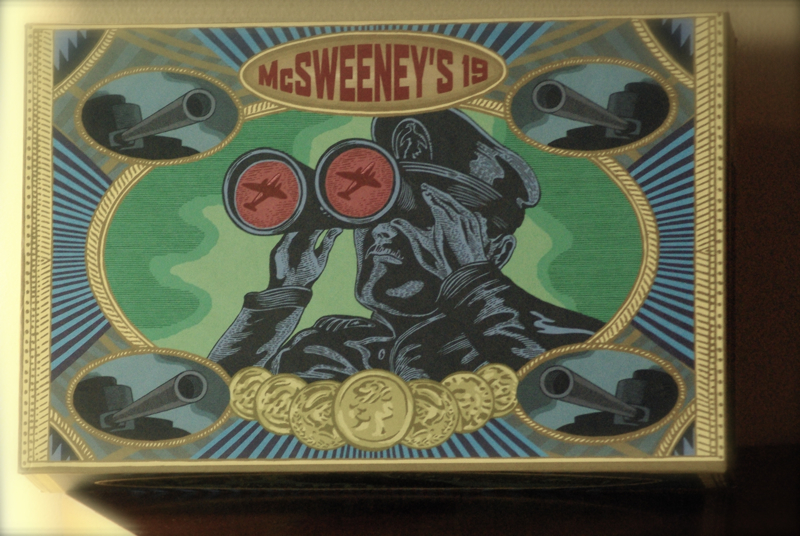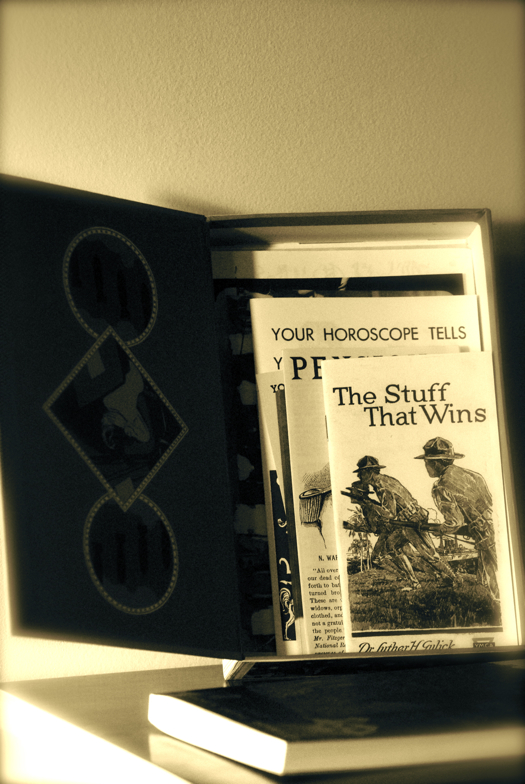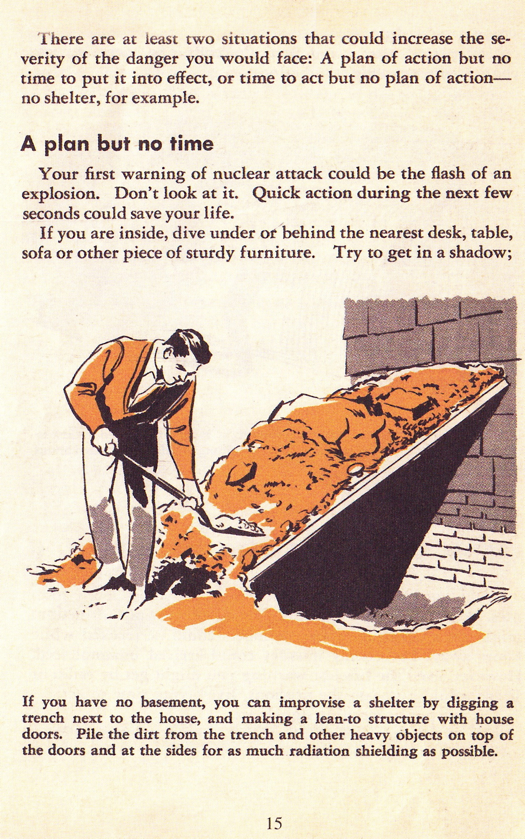Scan barcode
cheezh8er's review against another edition
4.0
The pieces in this collection were hit or miss for me but McSweeney's presentation never fails to impret
sentient_meat's review
4.0
McSweeney's # 19 comes to you as a cigar box full of crap. All be it incredibly interesting crap. The box itself is beautiful and contains a plethora of pamphlets and PSA type one sheets from the cold war era. The actual journal at the back contains some great stories including a series of works based on Debussy paintings, and a novella by T.C. Boyle called Wild Child which is one of the best things I've read by Boyle.
emilysquest's review

After a couple of disappointing reads I was in dire need of a palate-cleanser, something light and distracting and candy-like that would be fun to breeze through. I've had this delightful collection of historical ephemera, otherwise known as McSweeney's #19, hanging around the to-be-read shelf for quite some time, and figured it was just what the doctor ordered. Those folks at McSweeney's sure know how to put together an appealing package: housed within this vintage-inspired "cigar box" is not only the standard paperback literary periodical one would expect, but a whole collection of pamphlets, photographs, battle plans and informational circulars associated with wartime and politics throughout American and British history.

These are reproductions of actual pamphlets, letters, and so on, which make give them that special "artifact" feel. I find it's hard to resist a curated exhibition of primary-source documents - especially ones so hilarious and heartbreaking. One of my favorites is a pamphlet, apparently circulated by the Nixon/Agnew campaign to their female supporters, entitled "Your Horoscope Tells You How You Can Help Republican Party WIN!" In addition to the Cro-Magnon-esque syntax of that title, it features stunning pieces of advice like this one (to the Cancer lady):
You can turn chaos into order, especially in the filing drawers. You'll be effective on the telephone, too...
Or this, to the Leo Nixon supporter:
Try to invade the camp of the opposition and go after the opposite sex in the crowd; they'll buy Nixon/Agnew all the way! One word of warning: the most important feature of this campaign is teamwork. It may kill you, but COOPERATE.
Awesome. So, what's your poison: secretary or prostitute? Either way, Nixon/Agnew wants YOU on board this November.
Also included in the menagerie of political detritus is an incredibly jingoistic WWI-era pamphlet that tries to prove "scientifically" why soldiers shouldn't drink, gamble, or sleep around ("The other nations say that our boys win because we make a business of it, that we go at it hard and drop everything that interferes. I guess they are right."); a pamphlet by a Civil War-era ambulance chaser working to extend veterans' pensions; a 1957 pocket guidebook distributed by the US Marine Corps to servicemen stationed in the Middle East ("As an American you will not be a stranger in the Middle East. Even though you may occasionally find some antagonism, a reservoir of good will toward us has been developed over the years."). And check out this amazing illustration, part of a brochure distributed by the Department of Defense in 1961 on what to do in the event of nuclear war. Dude's gonna weather the fallout from a 5-megaton blast under a FRONT DOOR PILED WITH DIRT, tipped against his house. The mind reels.

Imagine having seen photos of the nuclear wreckage at Hiroshima, and then receiving this brochure in the mail and reading advice like "Farm machinery, troughs, wells, and any produce you cannot get into barns should be covered with tarpaulins." Tarps. Excellent.
I found the stories in the actual bound-and-printed portion of #19 less remarkable than the fascinating first-hand flotsam that accompanied it. The high point, by far, was the T.C. Boyle novella Wild Child - a fictionalized (although very true to history) account of the relationship between the 18th-century Wild Boy of Aveyron and his would-be mentor and civilizer, Jean Marc Gasapard Itard. Coincidentally, I just read about Victor of Aveyron last February, as part of a nonfiction study of feral children and their discoverers. Interestingly, Boyle's novella was effective for the very reason I felt the nonfiction book fell flat: in most cases, there is no direct evidence of the subjective experience of these feral children, because most of them never acquire language (sadly, most of them die within a few years of being "discovered"). So Michael Newton's nonfiction treatment ended up being, in actuality, a history of the people who worked with these children, who tried, usually unsuccessfully, to break them of their "uncivilized" ways and make them into "productive members of society." Newton examines the struggles and motivations these scientists and social workers faced. Which is kind of interesting, but not nearly as interesting as the question of what the experience is like for the children themselves: something Boyle, because he's working with fiction and his imagination, can explore.
Did he somehow come to understand that people were his tribe in a way that a bear instinctually consorts with other bears rather than foxes or wolves or goats? Did he know he was human? He must have. He had no words to form the proposition, no way of thinking beyond the present moment, but as he grew he became less a creature of the forest and more of the pasture, the garden, the dim margin where the tress and the maquis give way to cultivation.
This was actually my first exposure to Boyle (I know; where have I been? chock it up to my resistance to the authors "everyone's reading"), and I quite liked him. Apparently, "Wild Child" is an excerpt from his 2006 novel Talk, Talk, which is intriguing to me since I hear the primary plot concerns credit card fraud - not exactly what you expect to see paired with 18th-century France. Do any Boyle fans out there have a recommendation for my first full-length novel by him? I'm a little resistant to reading The Women, despite its beautiful cover, but other than that I'm open.
In any case, a romp through wartime McSweeney's-land was exactly what I needed to get my reading back on track.
More...